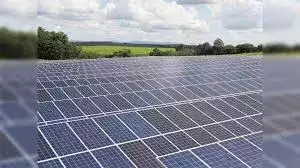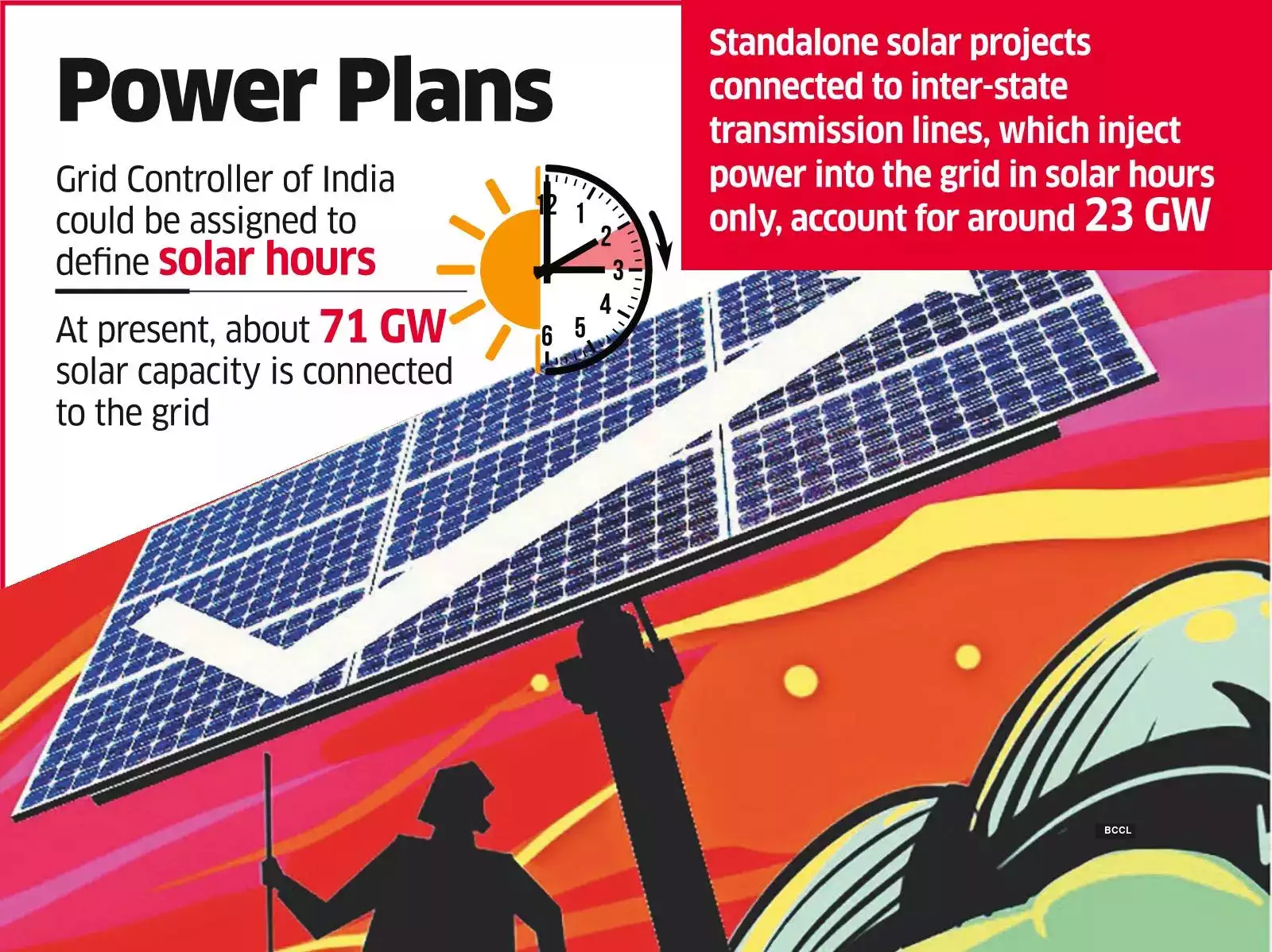
New Delhi: The government is considering a proposal that suggests that in the non-solar hours, electrical grid capacity assigned to solar power producers without storage system should be freed up for power input mainly through storage by existing or other generators.
Deliberations are on to reduce the grid connectivity of solar power plants that don't have storage systems to just the solar hours, against the entire day now, officials aware of the matter told ET, adding that this will free up the grid in non-solar hours and allow for more electricity to be injected into the system, mostly by addition of energy storage.
Under the general network access norms, connectivity to solar generators is allocated for the entire day. However, such projects utilise the connectivity only during solar hours, resulting in connectivity remaining idle for the rest of the hours.

"If an incumbent company that has been granted the grid capacity is not interested in putting up storage or using the non-solar hours in any other way, then the non-solar hour connectivity will be assigned to other developers," a senior official told ET, requesting not to be named.
The non-solar hours can be utilised for energy storage or any form of additional renewable generation, according to people in the know.
The Grid Controller of India could be assigned to define solar hours, according to officials.
"The idea is to use the existing grid lines for maximum benefit. Some of the grid capacity is not used in non-solar hours of the day. Project owners can bring in energy storage systems," said another official, requesting not to be identified.
To make use of the unutilised grid in the non-solar hours, the central transmission utility will provide the substation-wise availability to all agencies that hold auctions for renewable energy capacities.
As of date, about 71 GW solar capacity is connected to the grid. Of this, standalone solar projects connected to inter-state transmission lines, which inject power into the grid in solar hours only, account for around 23 GW, said another official.
India's target of 500 GW non-fossil fuel capacity by 2030 necessitates substantial investment in renewable energy and its vital enabling infrastructure - the transmission system.
The new renewable energy generating stations with storage would be allowed to apply for the grid that is available in non-solar hours for co-sharing of the existing transmission resources, said one of the persons cited earlier.
Disclaimer: The copyright of this article belongs to the original author. Reposting this article is solely for the purpose of information dissemination and does not constitute any investment advice. If there is any infringement, please contact us immediately. We will make corrections or deletions as necessary. Thank you.





